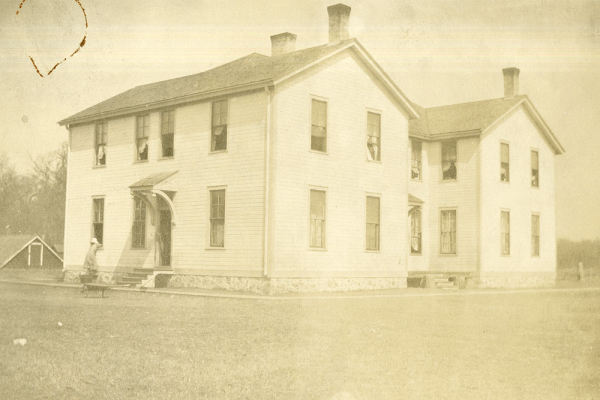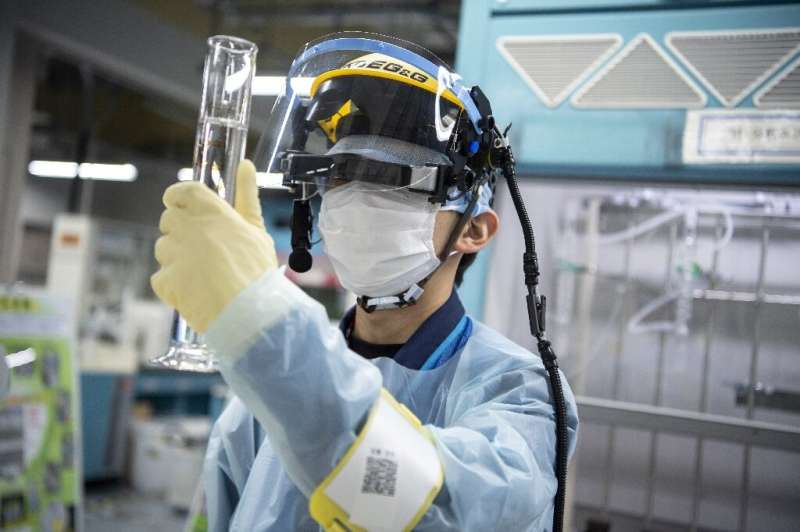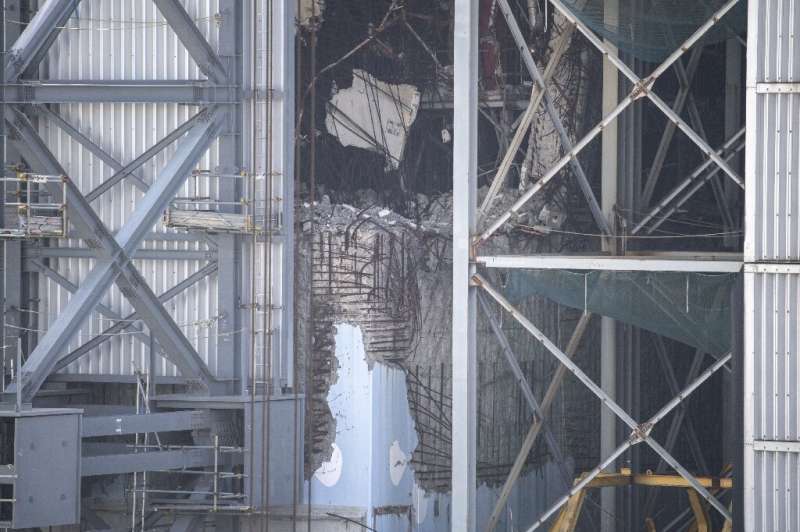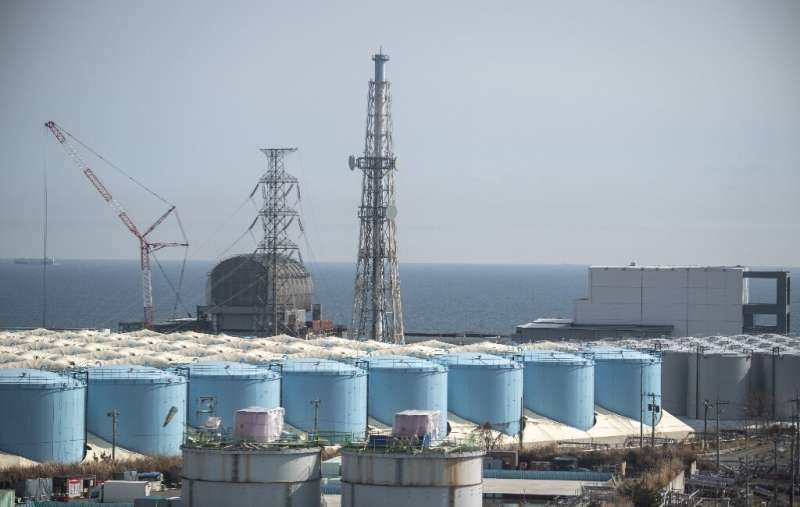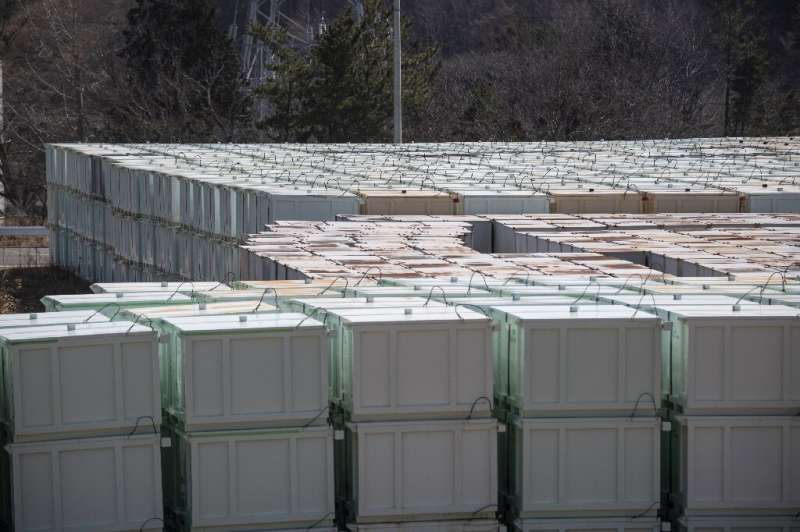WANNABE HEMINGWAYS
Exclusive: So many Canadian fighters in Ukraine, they have their own battalion, source says
The International Legion for the Territorial Defence of Ukraine says the 550 would-be fighters from Canada are based in Kyiv
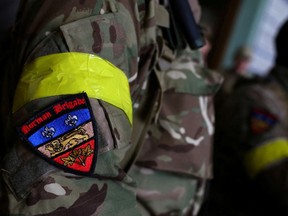
Article content
So many citizens of Canada have shown up in Ukraine to fight for the country’s new foreign legion, the organization has set up a separate Canadian battalion, says a Ukrainian government source.
Advertisement 2
Article content
The news is more evidence of a historic movement by people here to join the armed forces of another nation, and potentially risk their lives in combat against Russian invaders.
Explosions, no gas, visa trouble: How a Canadian-Ukrainian family escaped Kyiv as bombs fell
The 550 would-be fighters that have arrived from Canada so far are part of a battalion based in Kyiv, said the representative of the International Legion for the Territorial Defence of Ukraine, who asked not to be identified for security reasons.
“International legion volunteers are usually kept together for logistics purposes as it is easier for communication, to avoid language barriers,” he said.
Advertisement 3
Article content
Meanwhile, a Ukrainian-Canadian activist helping in the recruitment of fighters in this country said hundreds more have volunteered to fight in Ukraine.
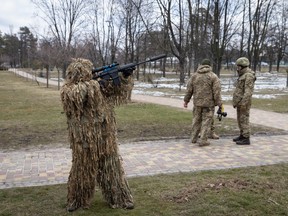
Borys Wrzesnewskyj, a former Liberal MP who is helping Ukrainian diplomats organize volunteers for the International Legion, said his rough estimate is that at least 1,000 Canadians have applied to join the force.
Canadians can sign up for the official Ukrainian-government program through the website defendukraine.ca or by contacting the embassy and consulates directly, but Wrzesnewskyj said many are simply “picking up and going” to Ukraine via Poland.
“What is so heartfelt is that we have so many Canadian ex-military who are stepping forward and understand that this is just so fundamentally wrong,” he said about the response to Russia’s invasion. “They by nature are protectors and … they are willing to step forward, travel to Ukraine.”
Advertisement 4
Article content
“They also are aware this isn’t just the battle for the freedom and democracy of 44 million Ukrainian citizens. Today, the people on the front lines of Ukraine … are defending the north-Atlantic democratic space.”
Ukrainian diplomats have said that the country would give priority to Canadians with military experience, but welcome anyone interested in joining the fight.
The embassy is vetting those who have applied. At least some Canadians cleared to go to Ukraine will receive training in Poland, according to Wrzesnewskyj and Chris Ecklund, a Hamilton, Ont., businessman who has set up his own group, fightforukraine.ca, to assist those going overseas.
The International Legion source said Ukraine would like to see airlines in Canada and elsewhere provide free passage to Poland for would-be fighters. For now, they must pay their own way or rely on funds raised by churches and other groups, he said.
Advertisement
Article content
“We had a lady write us that her church started this campaign. It’s very sweet,” said the legion spokesman. “But if every airline donated at least five to 10 seats on the plane tomorrow, we could have been able to get all those 20,000 volunteers (from around the world) faster to Ukraine.”
Meanwhile, Ecklund said this week that the fightforukraine.ca website has faced repeated attacks from suspected Russian hackers.
The federal government has sent somewhat mixed messages to Canadians thinking of fighting in Ukraine.
Melanie Joly, the foreign affairs minister, acknowledged that some people will make “individual decisions” to do so.
But the office of Defence Minister Anita Anand said, “Canadians should continue avoid all travel to Ukraine, and those in Ukraine should leave if it is safe for them to do so.”
National Post, with additional reporting from Tyler Dawson
'Heroic spirits': Women rush to Ukraine's defence
Dmitry ZAKS
Fri, 11 March 2022
Iryna Sergeyeva became the first volunteer fighter to get a full military contract in Ukraine (AFP/Sergei SUPINSKY)
Female soldiers represent only a small portion of Ukraine's armed forces, although that number is quickly growing

Ukrainians are rushing to help out any way they can to defend Kyiv against advancing Russian troops (AFP/Sergei SUPINSKY)

The woman who was Ukraine's first female volunteer to get a full military contract wants the new recruits in her charge to drop all notions about the romance of war.
Iryna Sergeyeva was accepted as a reservist in the territorial defence forces when Ukraine was still trying to quash a Kremlin-backed insurgency across its industrial east in 2017.
Now, an all-out invasion by Russia on February 24 has turned the battle into an existential fight for Ukraine's very survival as an independent state.
But the 39-year-old media relations professional turned army lieutenant is worried that other women -- as well as many men -- are rushing to enlist in Ukraine's new volunteer army without appreciating the perils of war.
"In the first days, a lot of young women came wanting to get their hands on a rifle so that they could go out and fight," Sergeyeva said at an underground garage that has been transformed into an impromptu military training base.
Chaotic scenes of men and women of all ages and professions urgently preparing to defend their besieged city unfolded around Sergeyeva as she spoke.
A group of silent men with exhausted expressions on their unshaven faces lounged in rows of bunk beds lining one of the cement walls.
A few older women in civilian clothes jotted down the personal details of new volunteers into their laptops.
A young man sat under a bleak neon light getting his mop of hair shaved off by a woman in a trendy beanie.
Sergeyeva stood in the middle of it all with a pensive expression and explained the sensitive nature of her job as chief volunteer forces organiser for her district of Kyiv.
"I understood that many of these young women were romanticising everything a little bit. Their heroic spirits were stirring," she said.
"They were telling themselves they were about to go out and fight without really understanding how it all works. I had to nod my head while gently telling them no, you might not be suited for this."
She paused and smiled.
"But then this was also true with some of the guys," she said.
- Upside down world -
Russia's offensive has pushed its forces to the very edge of Kyiv and created a sense of peril on the streets.
Parts of the capital's outskirts have already been levelled by a punishing air assault that has pushed tens of thousands from their homes.
The bodies of Russian soldiers and Ukrainian civilians lay unattended on the debris-laden parks and streets of Kyiv's northwestern suburbs.
Metal tank traps and sandbagged checkpoints honeycomb the hollowed-out city itself into segments that could be better defended in a guerrilla war.
Their city's sudden transformation has had a profound effect on people such as aspiring artist Natalia Derevyanko.
The 24-year-old historian by training looked shyly at Sergeyeva and quietly defended her decision to try and fight.
"My mum praised me doing this," the 24-year-old said on her second day of combat training at the garage.
"A lot of people are changing their professions because our entire world has turned upside down."
- Disappearing fears -
The nose of Olena Maystrenko's assault rifle swung around her knees as she awaited orders about her new deployment.
But the 22-year-old psychologist said she had overcome her initial reservation and was now girding for the possibility that she may have to shoot someone dead.
"It was frightening -- especially at the start, when you first pick up a weapon and realise that you may have to kill someone," she said.
"But then you overcome it. Life is full of nuances. Your fears disappear."
Ukraine's laws once made it difficult for women to become professional soldiers.
Sergeyeva said the military had to bend its laws to allow her to undergo two years of training and then sign a full contract.
She estimated that women represented only five percent of the country's combat soldiers and military intelligence officers before the Russian assault began.
That number is quickly growing.
Small business owner Natalia Kuzmenko said she came down to the training centre to cook meals for the soldiers and make sure everyone had fresh uniforms.
"But I signed a contract," said the 53-year-old. "That means that I must be ready to pick up a gun and fight."
zak/dc/cdw
Ukrainian embassy draws US citizens seeking to fight in war
By BEN FOX

Major General Borys Kremenetskyi, Defense Attache with the Embassy of Ukraine, listens to Ukraine's Ambassador to the United States Oksana Markarova as she speaks during a news conference at the Embassy of Ukraine in Washington, on Feb. 24, 2022. Russia’s invasion of Ukraine has given the smaller nation’s embassy in Washington an unexpected role: recruitment center for Americans who want to join the fight. Diplomats working out of the embassy, in a townhouse in the Georgetown section of the city, are fielding thousands of offers from volunteers seeking to fight for Ukraine.
WASHINGTON (AP) — Russia’s invasion of Ukraine has given the smaller nation’s embassy in Washington an unexpected role: recruitment center for Americans who want to join the fight.
Diplomats working out of the embassy, in a townhouse in the Georgetown section of the city, are fielding thousands of offers from volunteers seeking to fight for Ukraine, even as they work on the far more pressing matter of securing weapons to defend against an increasingly brutal Russian onslaught.
“They really feel that this war is unfair, unprovoked,” said Ukraine’s military attaché, Maj. Gen. Borys Kremenetskyi. “They feel that they have to go and help.”
U.S. volunteers represent just a small subset of foreigners seeking to fight for Ukraine, who in turn comprise just a tiny fraction of the international assistance that has flowed into the country. Still, it is a reflection of the passion, supercharged in an era of social media, that the attack and the mounting civilian casualties have stirred.
“This is not mercenaries who are coming to earn money,” Kremenetskyi said. “This is people of goodwill who are coming to assist Ukraine to fight for freedom.”
The U.S. government discourages Americans from going to fight in Ukraine, which raises legal and national security issues.
Since the Feb. 24 invasion, the embassy in Washington has heard from at least 6,000 people inquiring about volunteering for service, the “vast majority” of them American citizens, said Kremenetskyi, who oversees the screening of potential U.S. recruits.
Half the potential volunteers were quickly rejected and didn’t even make it to the Zoom interview, the general said. They lacked the required military experience, had a criminal background or weren’t suitable for other reasons such as age, including a 16-year-old boy and a 73-year-old man.
Some who expressed interest were rejected because the embassy said it couldn’t do adequate vetting. The general didn’t disclose the methods used to screen people.
Kremenetskyi, who spoke to The Associated Press just after returning from the Pentagon for discussions on the military hardware his country needs for its defense, said he appreciates the support from both the U.S. government and the public.
“Russians can be stopped only with hard fists and weapons,” he said.
So far, about 100 U.S. citizens have made the cut. They include veterans of the wars in Iraq and Afghanistan with combat experience, including some helicopter pilots, the attaché said.
They must make their own way to Poland, where they are to cross at a specified point, with their own protective gear but without a weapon, which they will get after they arrive. They will be required to sign a contract to serve, without pay, in the International Legion for the Territorial Defense of Ukraine.
The Ukrainian government says about 20,000 foreigners from various nations have already joined.
Borys Wrzesnewskyj, a former Liberal lawmaker in Canada who is helping to facilitate recruitment there, said about 1,000 Canadians have applied to fight for Ukraine, the vast majority of whom don’t have any ties to the country.
“The volunteers, a very large proportion are ex-military, these are people that made that tough decision that they would enter the military to stand up for the values that we subscribe to,” Wrzesnewskyj said. “And when they see what is happening in Ukraine they can’t stand aside.”
It’s not clear how many U.S. citizens seeking to fight have actually reached Ukraine, a journey the State Department has urged people not to make.
“We’ve been very clear for some time, of course, in calling on Americans who may have been resident in Ukraine to leave, and making clear to Americans who may be thinking of traveling there not to go,” Secretary of State Antony Blinken told reporters recently.
U.S. citizens aren’t required to register overseas. The State Department says it’s not certain how many have entered Ukraine since the Russian invasion.
Under some circumstances, Americans could face criminal penalties, or even risk losing their citizenship, by taking part in an overseas conflict, according to a senior federal law enforcement official.
But the legal issues are only one of many concerns for U.S. authorities, who worry about what could happen if an American is killed or captured or is recruited while over there to work for a foreign intelligence service upon their return home, said the official, who spoke on condition of anonymity to discuss sensitive security matters.
The official and independent security experts say some of the potential foreign fighters may be white supremacists, who are believed to be fighting on both sides of the conflict. They could become more radicalized and gain military training in Ukraine, thereby posing an increased danger when they return home.
“These are men who want adventure, a sense of significance and are harking back to World War II rhetoric,” said Anne Speckhard, who has extensively studied foreigners who fought in Syria and elsewhere as director of the International Center for the Study of Violent Extremism.
Ukraine may be getting around some of the potential legal issues by only facilitating the overseas recruitment, and directing volunteers to sign their contracts, and receive a weapon, once they arrive in the country. Also, by assigning them to the territorial defense forces, and not front-line units, it reduces the chance of direct combat with Russians, though it’s by no means eliminated.
The general acknowledges the possibility that any foreigners who are captured could be used for propaganda purposes. But he didn’t dwell on the issue, focusing instead on the need for his country to defend itself against Russia.
“We are fighting for our existence,” he said. “We are fighting for our families, for our land. And we are not going to give up.”
___
Associated Press writer Rob Gillies in Toronto contributed to this report.


